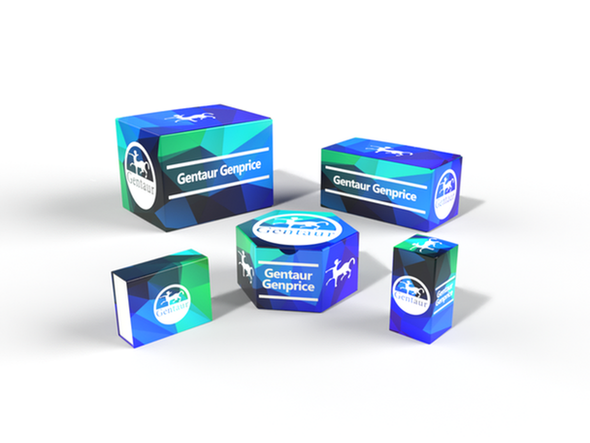740
Mouse Interleukin-7 (IL-7) ELISA Kit | AE60767MO
- SKU:
- 740-AE60767MO
- Availability:
- Usually ships in 5 working days
Description
Mouse Interleukin-7 (IL-7) ELISA Kit | AE60767MO | Gentaur UK, US & Europe Distribution
Species Reactivity: Mouse (Mus musculus)
Abbreviation: IL7
Alternative Name: IL-7; IL7 nirs variant 6
Application: ELISA
Range: 0.625-40 ng/mL
Sensitivity: 0.244 ng/mL
Intra-Assay: ≤3.8%
Inter-Assay: ≤7.5%
Recovery: 0, 8
Sample Type: Serum, Plasma, Other biological fluids
Detection Method: Sandwich
Analysis Method : Quantitive
Test Principale: This assay employs a two-site sandwich ELISA to quantitate IL7 in samples. An antibody specific for IL7 has been pre-coated onto a microplate. Standards and samples are pipetted into the wells and anyIL7 present is bound by the immobilized antibody. After removing any unbound substances, a biotin-conjugated antibody specific for IL7 is added to the wells. After washing, Streptavidin conjugated Horseradish Peroxidase (HRP) is added to the wells. Following a wash to remove any unbound avidin-enzyme reagent, a substrate solution is added to the wells and color develops in proportion to the amount of IL7 bound in the initial step. The color development is stopped and the intensity of the color is measured.
Product Overview: Interleukin 7 is a type I short-chain cytokine belonging to the hematopoietin family. Mouse IL-7 is an approximately 25 kDa monomeric glycoprotein that is synthesized as a 154 amino acid (aa) residue precursor with a 25 aa signal sequence and a 129 aa mature segment. Mature mouse IL-7 has six cysteine residues that form three intrachain disulfide bonds, only one of which is required for bioactivity. Although multiple alternatively spliced isoforms of human IL-7 that differ in their receptor-binding affinities exist, alternatively spliced isoforms of mouse IL-7 have not been reported. Cells known to express IL-7 include Class II MHC positive thymic cortical epithelial cells, follicular dendritic cells, intestinal epithelium, monocytes and keratinocytes, endothelial cells, vascular smooth muscle cells and fibroblasts, and bone marrow stromal cells.
Stability: The stability of ELISA kit is determined by the loss rate of activity. The loss rate of this kit is less than 5% within the expiration date under appropriate storage condition. The loss rate was determined by accelerated thermal degradation test. Keep the kit at 37°C for 4 and 7 days, and compare O.D.values of the kit kept at 37°C with that of at recommended temperature. (referring from China Biological Products Standard, which was calculated by the Arrhenius equation. For ELISA kit, 4 days storage at 37°C can be considered as 6 months at 2 - 8°C, which means 7 days at 37°C equaling 12 months at 2 - 8°C) .






